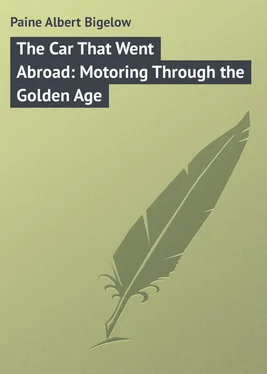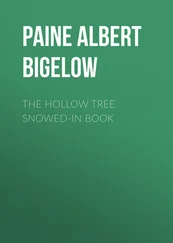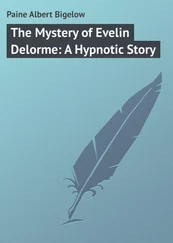Albert Paine - The Car That Went Abroad - Motoring Through the Golden Age
Здесь есть возможность читать онлайн «Albert Paine - The Car That Went Abroad - Motoring Through the Golden Age» — ознакомительный отрывок электронной книги совершенно бесплатно, а после прочтения отрывка купить полную версию. В некоторых случаях можно слушать аудио, скачать через торрент в формате fb2 и присутствует краткое содержание. Жанр: foreign_prose, Путешествия и география, на английском языке. Описание произведения, (предисловие) а так же отзывы посетителей доступны на портале библиотеки ЛибКат.
- Название:The Car That Went Abroad: Motoring Through the Golden Age
- Автор:
- Жанр:
- Год:неизвестен
- ISBN:нет данных
- Рейтинг книги:5 / 5. Голосов: 1
-
Избранное:Добавить в избранное
- Отзывы:
-
Ваша оценка:
- 100
- 1
- 2
- 3
- 4
- 5
The Car That Went Abroad: Motoring Through the Golden Age: краткое содержание, описание и аннотация
Предлагаем к чтению аннотацию, описание, краткое содержание или предисловие (зависит от того, что написал сам автор книги «The Car That Went Abroad: Motoring Through the Golden Age»). Если вы не нашли необходимую информацию о книге — напишите в комментариях, мы постараемся отыскать её.
The Car That Went Abroad: Motoring Through the Golden Age — читать онлайн ознакомительный отрывок
Ниже представлен текст книги, разбитый по страницам. Система сохранения места последней прочитанной страницы, позволяет с удобством читать онлайн бесплатно книгу «The Car That Went Abroad: Motoring Through the Golden Age», без необходимости каждый раз заново искать на чём Вы остановились. Поставьте закладку, и сможете в любой момент перейти на страницу, на которой закончили чтение.
Интервал:
Закладка:
I stopped the car. This, I said, was our opportunity. Nothing could be better than that ancient and lofty perch overlooking the valley of the Rhone. The "To Let" sign had been there certainly a hundred years, so the price would be reasonable. We could get it for a song; we would inherit its traditions, its secret passages, its donjons, its ghosts, its – I paused a moment, expecting enthusiasm, even eagerness, on the part of the family. Strange as it may seem, there wasn't a particle of either. I went over those things again, and added new and fascinating attractions. I said we would adopt the coat of arms of that old family, hyphenate its name with ours, and so in that cheap and easy fashion achieve a nobility which the original owner had probably shed blood to attain.
It was no use. The family looked up the hill with an interest that was almost clammy. Narcissa asked, "How would you get the car up there?" The Joy said, "It would be a good place for bad dreams." The head of the expedition remarked, as if dismissing the most trivial item of the journey, that we'd better be going on or we should be late getting into Valence. So, after dreaming all my life of living in a castle, I had to give it up in that brief, incidental way.
Chapter XII
THE LOST NAPOLEON
Now, it is just here that we reach the special reason which had kept us where we had a clear view of the eastward mountains, and particularly to the westward bank of the Rhone, where there was supposed to be a certain tiny village, one Beauchastel – a village set down on none of our maps, yet which was to serve as an important identifying mark. The reason had its beginning exactly twenty-two years before; that is to say, in September, 1891. Mark Twain was in Europe that year, seeking health and literary material, and toward the end of the summer – he was then at Ouchy, Switzerland – he decided to make a floating trip down the river Rhone. He found he could start from Lake Bourget in France, and, by paddling through a canal, reach the strong Rhone current, which would carry him seaward. Joseph Very, his favorite guide (mentioned in A Tramp Abroad ), went over to Lake Bourget and bought a safe, flat-bottomed boat, retaining its former owner as pilot, and with these accessories Mark Twain made one of the most peaceful and delightful excursions of his life. Indeed, he enjoyed it so much and so lazily that after the first few days he gave up making extended notes and surrendered himself entirely to the languorous fascination of drifting idly through the dreamland of southern France. On the whole, it was an eventless excursion, with one exception – a startling exception, as he believed.
One afternoon, when they had been drifting several days, he sighted a little village not far ahead, on the west bank, an ancient "jumble of houses," with a castle, one of the many along that shore. It looked interesting and he suggested that they rest there for the night. Then, chancing to glance over his shoulder toward the eastward mountains, he received a sudden surprise – a "soul-stirring shock," as he termed it later. The big blue eastward mountain was no longer a mere mountain, but a gigantic portrait in stone of one of his heroes. Eagerly turning to Joseph Very and pointing to the huge effigy, he asked him to name it. The courier said, "Napoleon." The boatman also said, "Napoleon." It seemed to them, indeed, almost uncanny, this lifelike, reclining figure of the conqueror, resting after battle, or, as Mark Twain put it, "dreaming of universal empire." They discussed it in awed voices, as one of the natural wonders of the world, which perhaps they had been the first to discover. They landed at the village, Beauchastel, and next morning Mark Twain, up early, watched the sun rise from behind the great stone face of his discovery. He made a pencil sketch in his notebook, and recorded the fact that the figure was to be seen from Beauchastel. That morning, drifting farther down the Rhone, they watched it until the human outlines changed.
Mark Twain's Rhone trip was continued as far as Arles, where the current slackened. He said that some one would have to row if they went on, which would mean work, and that he was averse to work, even in another person. He gave the boat to its former owner, took Joseph, and rejoined the family in Switzerland.
Events thronged into Mark Twain's life: gay winters, summers of travel, heavy literary work, business cares and failures, a trip around the world, bereavement. Amid such a tumult the brief and quiet Rhone trip was seldom even remembered.
But ten or eleven years later, when he had returned to America and was surrounded by quieter things, he happened to remember the majestic figure of the first Napoleon discovered that September day while drifting down the Rhone. He recalled no more than that. His memory was always capricious – he had even forgotten that he made a sketch of the figure, with notes identifying the locality. He could picture clearly enough the incident, the phenomenon, the surroundings, but the name of the village had escaped him, and he located it too far down, between Arles and Avignon.
All his old enthusiasm returned now. He declared if the presence of this great natural wonder was made known to the world, tourists would flock to the spot, hotels would spring up there – all other natural curiosities would fall below it in rank. His listeners caught his enthusiasm. Theodore Stanton, the journalist, declared he would seek and find the "Lost Napoleon," as Mark Twain now called it, because he was unable to identify the exact spot. He assured Stanton that it would be perfectly easy to find, as he could take a steamer from Arles to Avignon, and by keeping watch he could not miss it. Stanton returned to Europe and began the search. I am not sure that he undertook the trip himself, but he made diligent inquiries of Rhone travelers and steamer captains, and a lengthy correspondence passed between him and Mark Twain on the subject.
No one had seen the "Lost Napoleon." Travelers passing between Avignon and Arles kept steady watch on the east range, but the apparition did not appear. Mark Twain eventually wrote an article, intending to publish it, in the hope that some one would report the mislaid emperor. However, he did not print the sketch, which was fortunate enough, for with its misleading directions it would have made him unpopular with disappointed travelers. The locality of his great discovery was still a mystery when Mark Twain died.
So it came about that our special reason for following the west bank of the Rhone – the Beauchastel side, in plain view of the eastward mountains – was to find the "Lost Napoleon." An easy matter, it seemed in prospect, for we had what the others had lacked – that is to say, exact information as to its locality – the notes, made twenty-two years before by Mark Twain himself 8 8 At Mark Twain's death his various literary effects passed into the hands of his biographer, the present writer.
– the pencil sketch, and memoranda stating that the vision was to be seen opposite the village of Beauchastel.
But now there developed what seemed to be another mystery. Not only our maps and our red-book, but patient inquiry as well, failed to reveal any village or castle by the name of Beauchastel. It was a fine, romantic title, and we began to wonder if it might not be a combination of half-caught syllables, remembered at the moment of making the notes, and converted by Mark Twain's imagination into this happy sequence of sounds.
So we must hunt and keep the inquiries going. We had begun the hunt as soon as we left Avignon, and the inquiries when there was opportunity. Then presently the plot thickened. The line of those eastward mountains began to assume many curious shapes. Something in their formation was unlike other mountains, and soon it became not difficult to imagine a face almost anywhere. Then at one point appeared a real face, no question this time as to the features, only it was not enough like the face of the sketch to make identification sure. We discussed it anxiously and with some energy, and watched it a long time, thinking possibly it would gradually melt into the right shape, and that Beauchastel or some similarly sounding village would develop along the river bank.
Читать дальшеИнтервал:
Закладка:
Похожие книги на «The Car That Went Abroad: Motoring Through the Golden Age»
Представляем Вашему вниманию похожие книги на «The Car That Went Abroad: Motoring Through the Golden Age» списком для выбора. Мы отобрали схожую по названию и смыслу литературу в надежде предоставить читателям больше вариантов отыскать новые, интересные, ещё непрочитанные произведения.
Обсуждение, отзывы о книге «The Car That Went Abroad: Motoring Through the Golden Age» и просто собственные мнения читателей. Оставьте ваши комментарии, напишите, что Вы думаете о произведении, его смысле или главных героях. Укажите что конкретно понравилось, а что нет, и почему Вы так считаете.












